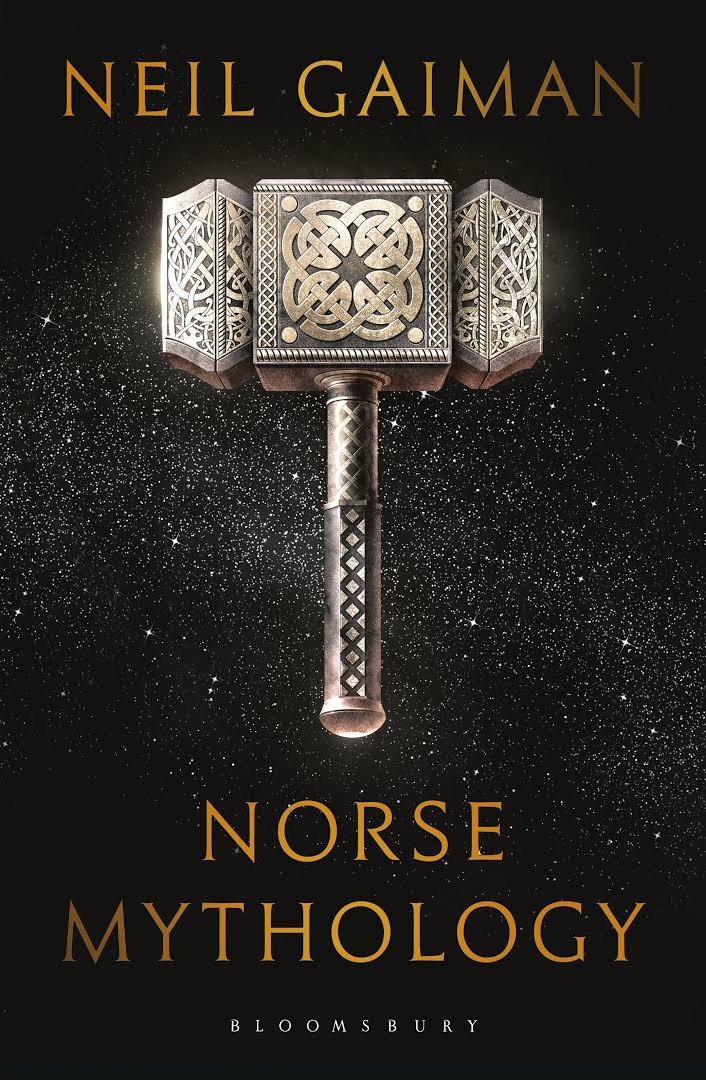Norse Mythology
Reviewed Apr 30, 2017 on The Litt Review.

Neil Gaiman has flirted with Norse Mythology before - it’s a central part of American Gods, his bestselling novel set in the modern-day US. And he referenced Odin and Thor a couple of times in Sandman, if I recall correctly, and more than a few times in his short stories and other random writings. But he’s never tackled the myths head on, either. So, it was a pleasant day when I found out that this book was coming out.
We all want to read more Norse myths (right?). But, for the most part, they are dry, or watered down into children’s books, or locked away in long poems. Don’t even get me started on the Thor movies by Marvel, based on the comic books, which liberally rewrite the myths and their central characters. This isn’t entirely a bad thing - myths grow - but it’s been hard to get to the marrow of the Norse mythos without sacrificing something - readability, or accuracy. Gaiman does an admiral job of threading the path between these two.
The book is less of a mythopoeia, like Edith Hamilton’s Mythology, and more of a narrative told in short stories, of how the God’s came into existence, and where they got their things and lost their limbs. There are a few constants; Loki features heavily in almost every story, and Gaiman’s love for tricksters is evident there. As well, there are some phrases that link back and forth between the stories, keeping you on your toes. The final one - on Ragnarok - is written in the future tense, and manages to wrap up some of the loose threads.
As well, Gaiman’s prose is as enjoyable as ever. It’s not hunkered down with lots of obscure syntax or vocabulary. I encountered only one word I’m not familiar with - caparisoned - in the whole book. There’s a lot of humor in the book. Not just the Norse kind, with ropes tied to testicles for a laugh, but also the Gaiman-esque modern kind, like repetitions of “Shut up, Thor.” It’s a laugh, and a breeze to read through.
But, while I liked it, I don’t think it captured the Norse spirit. There’s little here of the clear northern skies Lewis and Tolkien were always going on about. It doesn’t have the phantasmagoria of the Silmarillion, or similar efforts, which communicate, between the lines, pines roaring on the heights and fog creeping up the fjords. It was also very clean. Things were tied up. Stories made sense. There were no contradictions (or I wasn’t reading closely enough to find them). Magic played a hand, here and there, but thematically I wasn’t lost in the bewilderment of the telling. I feel like I ought to have been (and I would have complained about it, too). It didn’t read at all like Beowulf - no long lists of lineages, no long boasts that take pages. Just characters in tales, doing their thing.
What I couldn’t escape, as well, was how well Wolfe had done this, with The Wizard Knight. I’ve been rereading this book once a year for the last five years or so. It has the same names, and some of the same characters - Thor, Thrym, Thiazi, Odin, Setr, and so on. But, because it is a fictional book approached through the eyes of a young knight, you fall into the fiction more. You really feel like you know Odin, at the end. And you feel that “Winter Is Coming” - the doom of the Norwegian gods is always just around the bend, with Ragnarok. Even the last chapter, where Gaiman talks about what comes after Ragnarok, reminded me of the last bit of The Urth of the New Sun, arguably the best science fiction and fantasy book ever written. But those are both fictional novels, not short story compendiums. So this complaint may not be valid.
On two, smaller notes, I loved the final story where Loki is a salmon. It reminded me of the myths of the Haida, which I read about in A Story As Sharp As A Knife. I also loved the reference to Einherjars, the valiant men who live in Valhalla, mostly because it was an intense link to Age of Mythology, one of the few videogames I’ve played religiously.
Overall, a good book. I’m glad I’ve read it, and I’ll read it again. For getting a basic knowledge of Norse myths, this is probably your most accessible bet.
Do you want to get book reviews and notes from books I read in your inbox? Sign up! I'll include a summary, my favorite quotes from the book, and any vocabulary I found interesting or didn't know already.